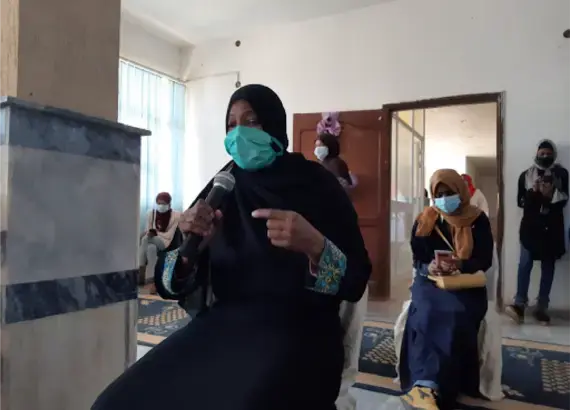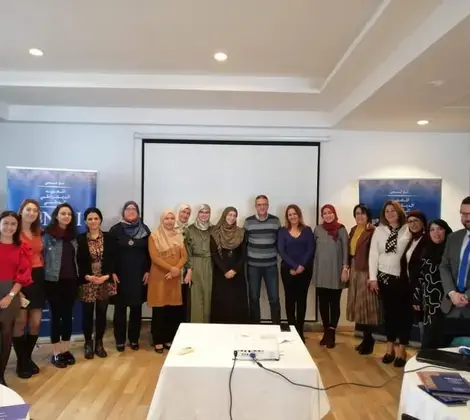
Success Story
It’s a Woman’s World: Change-makers in the MENA Region
Barriers to women’s political participation have long existed in the Middle East and North Africa (MENA). Conflict, gender-based violence, disempowerment, and restrictive laws all represent continued challenges that women face throughout the region. Pro-democracy protests have been sweeping across MENA for over a decade, leaving the countries of the region with no choice but to re-evaluate the place of women in their societies. Women who were at the forefront of demonstrations also deserved to be at the forefront of politics. Across the MENA region, the National Democratic Institute (NDI) implements programs to address these challenges and the gender imbalances prevalent throughout society by advancing women’s rights and empowering women to participate in politics. In honor of Women’s History Month, NDI is highlighting the achievements of women and celebrating the contributions they have made to history, culture, and society.
Women across MENA have been advocating for quotas to ensure that women are represented in future political processes and government positions within their respective countries. In Libya, with support from USAID through the Consortium for Elections and Political Process Strengthening (CEPPS), women’s advocacy groups supported by NDI have successfully raised awareness and facilitated change on issues affecting women throughout the country, including the lack of representation in government. Launched in 2018, the “30% Quota” campaign advocates at the local and national levels to ensure a quota for women in all levels of government. Last November, members of the campaign met with members of the Libya Political Dialogue Forum (LPDF) to push the forum in adopting these measures; as a result, in early 2021 the interim government elected by the LPDF pledged to include no less than 30 percent of women in executive positions.

In Jordan with CEPPS support, NDI collaborated with MP Wafa Bani Mustafa to establish the National Advisory Team to Combat Violence Against Women in Public Life (VAW-PL), which has held training sessions, workshops, and consultations to increase women’s political participation and address the current issues that women in politics face. NDI and the Advisory Team also worked together to spread awareness and provide training on the “Guide on Combating Violence against Women in Politics”. The guide explains the different definitions and characteristics of violence against women in politics, including physical, psychological, moral, societal, cyber, sexual, and legislative violence. Discussion sessions across Jordan’s 12 governantes were also held, allowing females in elected and appointed political positions to share their testimonies and add value to the importance of addressing VAW on both the national and local levels.
The accomplishments achieved by women across the MENA region have been significant, but the work is far from complete. Ensuring that political parties and governments uphold their promises for greater gender equality will take continued courage by the same women who pushed for them. The current issues facing women in politics will not disappear instantaneously; NDI and its partners on the ground remain ready to assist women in overcoming the barriers that they face.



